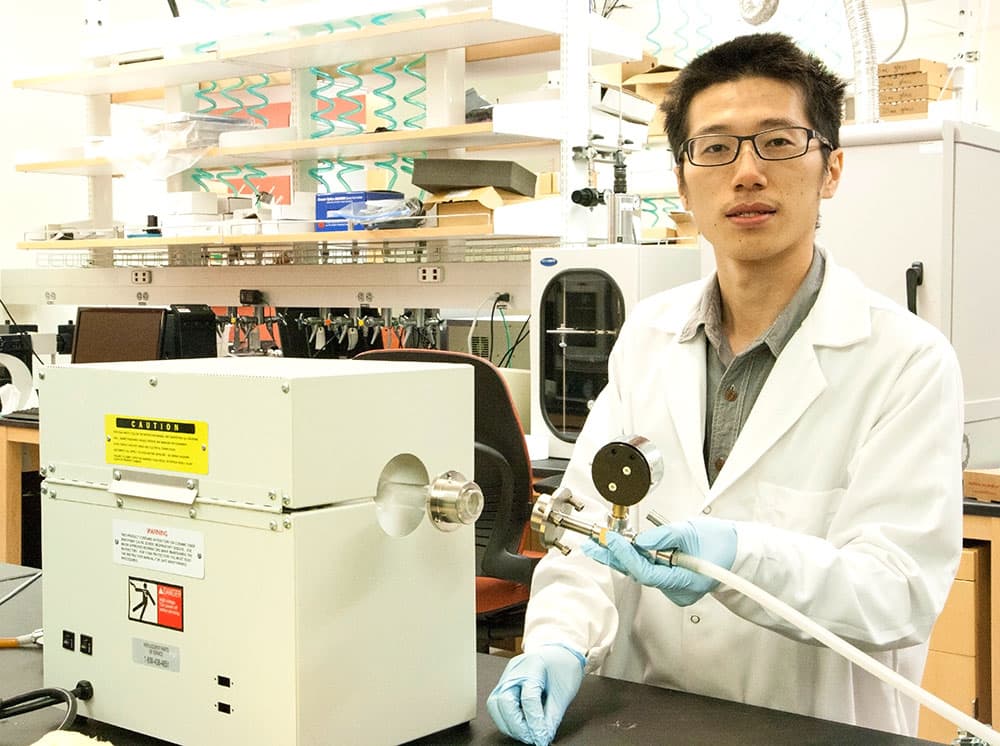New Research Could Make Batteries Last Five Times Longer
Just a couple of days back we witnessed a sensational development in Organic Radical Batteries by Hiroshima University. But due to technical complicacy, such an environment friendly system would take too long to commercialize and so far, only small steps have been initiated in the laboratory. So, what's the best alternative for the time being? A research team from the University of Texas at Dallas has discovered an efficient battery that could last 5% more than contemporary ones.
A team led by Dr. Kyeongjae Cho, professor of Materials science and engineering at the Erik Jonsson School of Engineering and Computer Science at the University of Texas at Dallas, has innovated a catalyst for Lithium-air batteries which boosts the life span of these batteries and could produce a fruitful result. Dr. Cho explained that Lithium-oxygen batteries show enormous potential and demand commercialization, however due to the lack of a correct approach, the process falters mid-way. The team is however hopeful, that their research would soon have widespread applications.

Yongping Zheng focuses on the electrolyte catalysts inside the batter
Lithium-Oxygen (also called as Li-air) batteries take the help of the available oxygen molecules in the positive electrode. Then O2 reacts with the positive lithium ions to generate Lithium peroxide which gives birth to electricity. This inherent reaction causes the Li-air battery to have 10 times more energy density than Li-ion batteries, which in turn expands the storage capacity of renewable energy. For convenience, the team cites an example, which says that at one fifth of the cost and weight associated with present batteries, a smartphone could store energy for more than a week without recharging, if a Li-air battery is used.
Dr. Cho mentioned that even though the research objective has undergone innumerable researches, due to a lack of clarity, none were able to prove their points and the system had become unstable. To aid the system, the team devised a catalyst based method. They customized soluble organic electrolyte catalysts that were unquestionably proven to be very viable in terms of efficiency.
The team further added that their research needs more time to grow, but we could soon have the day when would find the battery up and running. The research was published in the ‘Nature’ energy and was funded and supported by the Hyundai Motor Company and the National Research Foundation of Korea.
Source: #-Link-Snipped-#
A team led by Dr. Kyeongjae Cho, professor of Materials science and engineering at the Erik Jonsson School of Engineering and Computer Science at the University of Texas at Dallas, has innovated a catalyst for Lithium-air batteries which boosts the life span of these batteries and could produce a fruitful result. Dr. Cho explained that Lithium-oxygen batteries show enormous potential and demand commercialization, however due to the lack of a correct approach, the process falters mid-way. The team is however hopeful, that their research would soon have widespread applications.

Yongping Zheng focuses on the electrolyte catalysts inside the batter
Lithium-Oxygen (also called as Li-air) batteries take the help of the available oxygen molecules in the positive electrode. Then O2 reacts with the positive lithium ions to generate Lithium peroxide which gives birth to electricity. This inherent reaction causes the Li-air battery to have 10 times more energy density than Li-ion batteries, which in turn expands the storage capacity of renewable energy. For convenience, the team cites an example, which says that at one fifth of the cost and weight associated with present batteries, a smartphone could store energy for more than a week without recharging, if a Li-air battery is used.
Dr. Cho mentioned that even though the research objective has undergone innumerable researches, due to a lack of clarity, none were able to prove their points and the system had become unstable. To aid the system, the team devised a catalyst based method. They customized soluble organic electrolyte catalysts that were unquestionably proven to be very viable in terms of efficiency.
The team further added that their research needs more time to grow, but we could soon have the day when would find the battery up and running. The research was published in the ‘Nature’ energy and was funded and supported by the Hyundai Motor Company and the National Research Foundation of Korea.
Source: #-Link-Snipped-#
0
